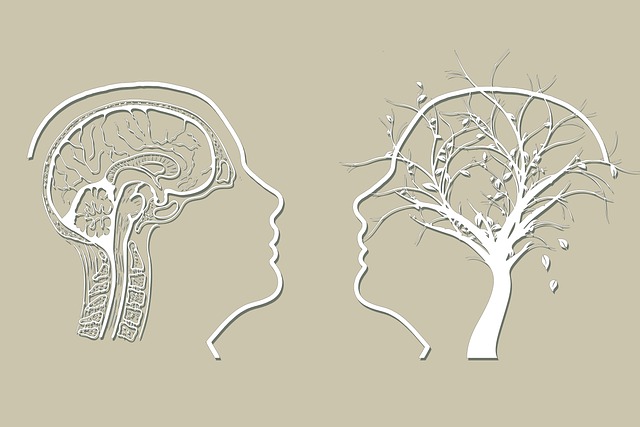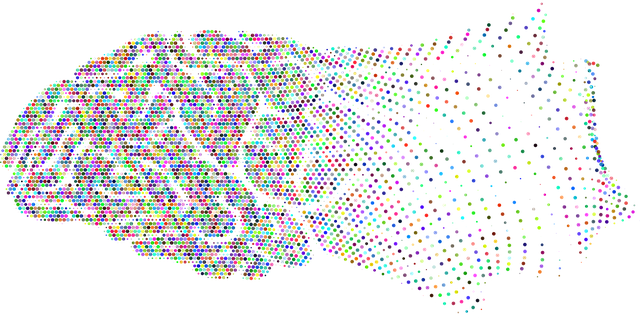Identifying and addressing mental health issues in young children is a complex yet vital process. Early detection through keen observation by parents, caregivers, and educators is crucial, as specialized therapy, such as evidence-based play or cognitive-behavioral techniques, can effectively manage childhood disorders. Suicide prevention is a key aspect, with culturally competent healthcare providers conducting thorough evaluations to ensure accurate diagnoses and tailored support. Therapy builds resilience and self-expression through activities like mental wellness journaling, while families access resources and support groups for comprehensive care and crisis intervention training.
“Mental illness diagnosis and treatment navigation is a critical yet often challenging task, especially for young children. This article offers a comprehensive guide for parents and caregivers navigating this landscape. We explore mental health issues in early childhood, delving into the diagnosis process to ensure accuracy and support. Further, we navigate effective therapy options, including suicide prevention strategies tailored for young minds. Additionally, discover valuable resources and tools to empower families in their journey towards healing.”
- Understanding Mental Health Issues in Young Children
- The Diagnosis Process: Ensuring Accuracy and Support
- Navigating Treatment Options: Therapy and Suicide Prevention Strategies
- Resources and Tools for Effective Family Support
Understanding Mental Health Issues in Young Children

Identifying mental health issues in young children is a delicate process that requires keen observation and specialized knowledge. Many childhood mental disorders can be effectively managed if caught early, emphasizing the crucial role of parents, caregivers, and educators in recognizing subtle signs. Mental wellness in this age group often involves navigating complex emotions, regulating behaviors, and fostering healthy coping mechanisms.
Therapy for young children plays a pivotal role in addressing these challenges. Through evidence-based practices, therapists can guide both the child and their family toward building resilience and inner strength development. Activities such as mental wellness journaling exercises can be powerful tools to encourage self-expression, emotional understanding, and awareness—all essential components of suicide prevention strategies for young minds.
The Diagnosis Process: Ensuring Accuracy and Support

The diagnosis process for mental illness is a delicate and crucial step, especially when it involves young children. It requires a comprehensive approach to ensure accuracy and provide appropriate support. Healthcare providers play a pivotal role in this journey by conducting thorough evaluations, which often include interviews, questionnaires, and observations. These assessments help identify symptoms, rule out other conditions, and understand the child’s unique experience. A valid diagnosis is essential as it forms the foundation for effective treatment planning.
Accuracy in diagnosis is paramount to prevent misinformed treatment approaches, especially regarding sensitive topics like suicide prevention. Young children may present unique challenges due to their developing brains and communication styles. Therefore, skilled healthcare providers must be culturally competent, understanding the child’s background and family dynamics. This awareness enables them to offer tailored guidance, ensuring that therapy for young children aligns with their cultural context and fosters emotional healing processes. Crisis intervention training is invaluable in these instances, empowering providers to navigate sensitive situations effectively.
Navigating Treatment Options: Therapy and Suicide Prevention Strategies

Navigating treatment options is a crucial step for anyone facing mental illness. Therapy plays a pivotal role in managing and overcoming various conditions, offering tools to cope with distressing thoughts and emotions. For young children, therapy can be tailored to their unique needs, focusing on play therapy or cognitive-behavioral techniques to foster anxiety relief and build resilience. These approaches consider the child’s developmental stage and often involve parents or caregivers, ensuring a supportive environment.
Suicide prevention is an essential component of comprehensive mental health care, particularly when treating younger individuals. Therapists equipped with specialized training can identify risk factors and implement strategies to promote safety and well-being. By integrating cultural sensitivity in mental healthcare practice, therapists can address unique challenges faced by diverse populations, ensuring effective suicide prevention interventions that respect individual backgrounds and beliefs.
Resources and Tools for Effective Family Support

Mental illness diagnosis can be a complex process, especially for families with young children. Effective support during this time involves a combination of resources and tools tailored to address the unique needs of each family. One crucial aspect is ensuring access to appropriate therapy for young children, which can include play therapy, cognitive-behavioral therapy (CBT), or other evidence-based approaches designed to help them express their feelings and develop coping strategies.
Family members themselves can benefit from compassion cultivation practices, self-care practices, and self-awareness exercises to manage stress and maintain a supportive environment. These practices not only enhance the parents’ well-being but also enable them to offer more consistent and compassionate care to their children. In addition, there are numerous online platforms and support groups that provide guidance and a sense of community for families navigating mental illness diagnosis and treatment. Resources focused on suicide prevention, in particular, can be invaluable for families where mental health challenges may escalate.
Mental illness diagnosis and treatment for young children is a complex yet essential process, requiring accurate assessment and tailored support. By navigating the diagnosis process with care and understanding, and leveraging available resources like therapy and suicide prevention strategies, families can foster healthy development in their children. With access to the right tools and knowledge, we can ensure that young minds receive the necessary care, paving the way for a brighter future filled with resilience and well-being. Implementing effective family support systems is crucial in promoting mental health and overall wellness among our youngest members.














